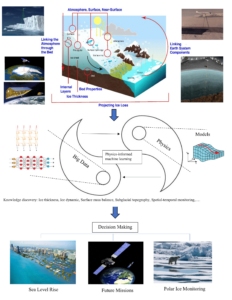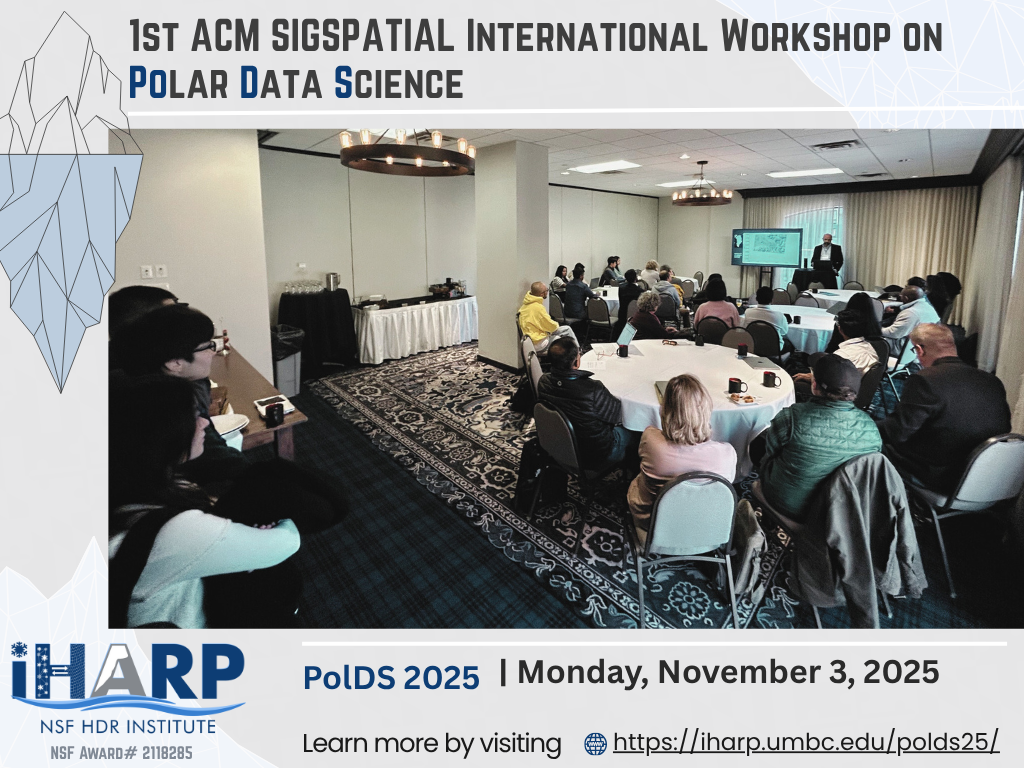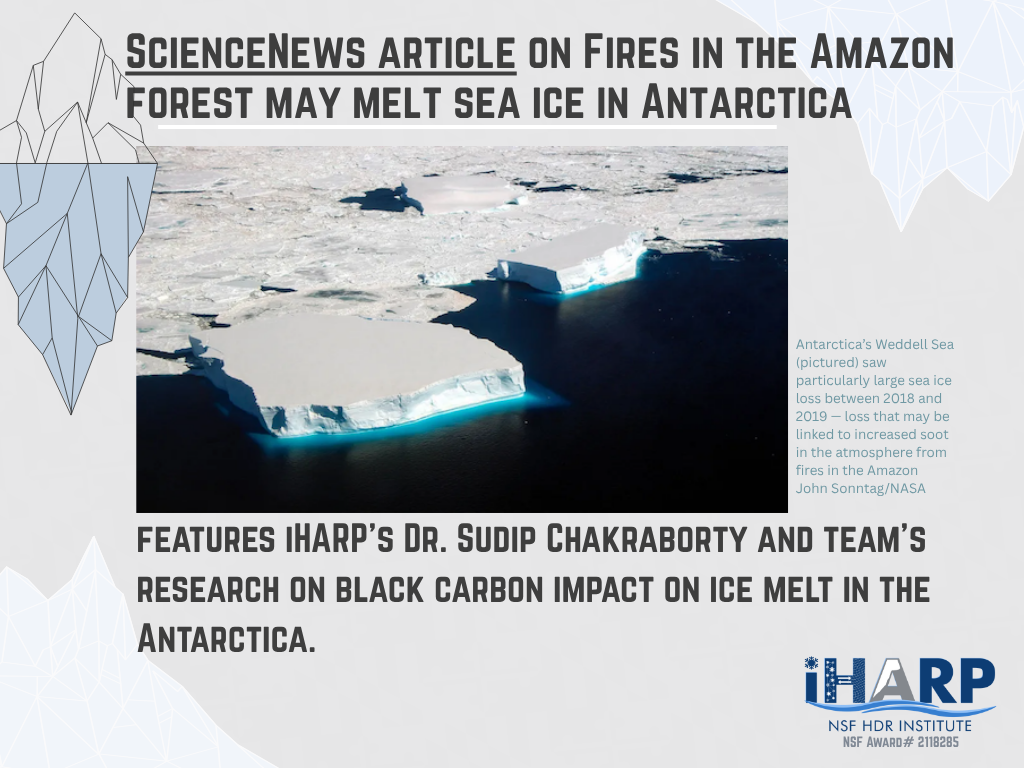iHARP: NSF HDR Institute for Harnessing Data and Model Revolution in the Polar Regions
Vision
iHARP advances our understanding of the response of polar regions to climate change and its global impacts by deeply integrating data science and polar science to spur physics-informed, data-driven discoveries.


Please click here to view a full list of collaborating institutions and partners
Science Questions
- How do we improve our ability to project the future ice sheet contribution to sea-level rise?
- How do we gain new insights into ice-dynamics?
- How do we better estimate and visualize the ice sheet and subglacial topography at a global scale?
- How can we link satellite-based observations of the near-surface with both atmospheric drivers and effects on the ice sheet?
Convergence Team
- Computer and Information Science
- Earth Science, Atmospheric Science, Oceanic Science
- Mathematics, Statistics, Physics
- Electrical Engineering, Civil Engineering
- Environmental Science, Geology, Glaciology
- Machine Learning, Data Science
- Image Processing, Computer Vision, Remote Sensing
- Cyber-infrastructure
Research Focus Areas
Data: Develop fundamental, transformative, and integrative solutions to prepare data for use by ML and physical models
Data & Model: Integrate data with numerical and physical models via physics informed ML and causal AI
Prediction: Develop spatial-temporal algorithms to forecast the future changes to the Greenland and Antarctic ice sheets
Scalability: Build scalable algorithms to apply our solutions on a global scale.
Broader Impacts
1) Providing tools, methods and infrastructure to improve understanding of ice sheet processes
2) Potential influence on the lives of tens of millions of people worldwide
3) Facilitating transdisciplinary collaboration, education and workforce development and public engagement in climate and data science
4) Engaging underrepresented minority student



